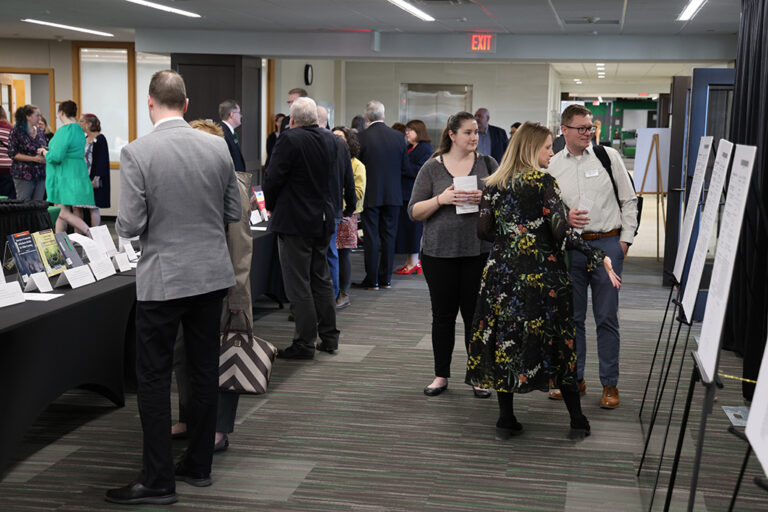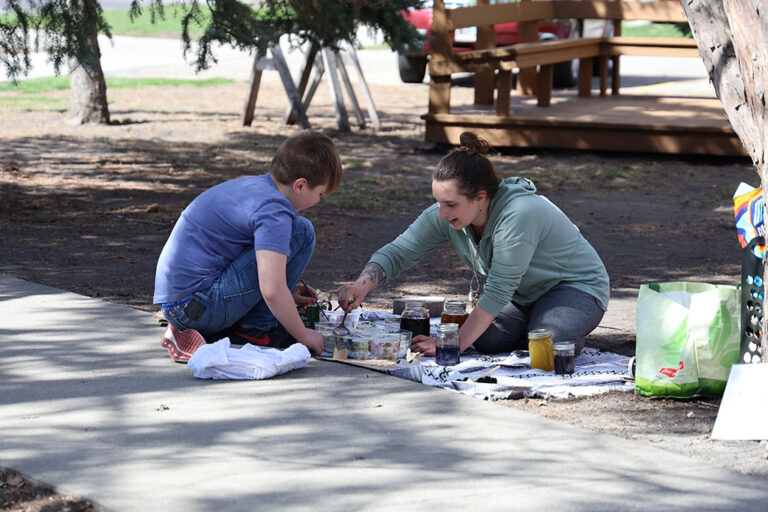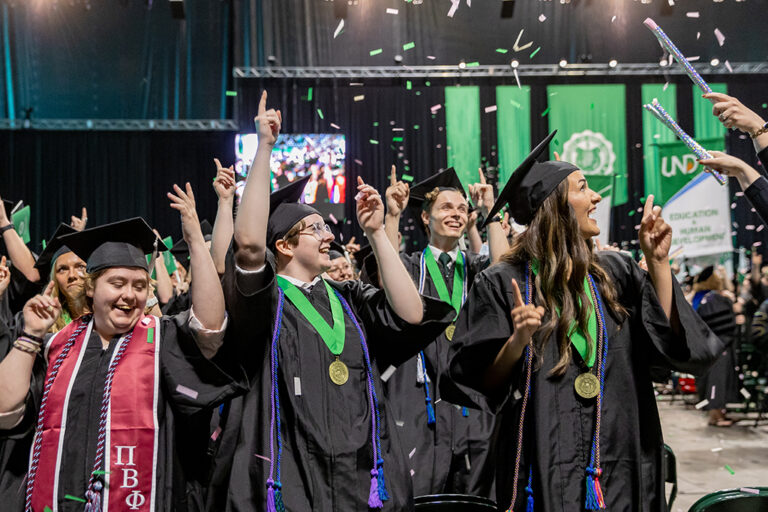State Board of Higher Education backs needs-based budget
Chancellor Hagerott, Board Chair Hacker testify before Senate Appropriations Committee

In what’s likely to be the first of a series of appearances before the North Dakota Legislature, state higher education leaders on Monday went before the Senate Appropriations Committee to advocate for a needs-based budget during the upcoming 2021-23 biennium.
The committee, chaired by Sen. Ray Holmberg, R-Grand Forks, this week heard testimony on Senate Bill 2003, the funding legislation for North Dakota higher education. UND President Andrew Armacost and Dr. Joshua Wynne, Dean of the UND School of Medicine & Health Sciences and UND’s Vice President for Health Affairs, were among those representing the University on Monday.

Nick Hacker, Chair of the State Board of Higher Education, led off with a summary of accomplishments from the past biennium and plans for the next.
“The university system has undergone a transformative process, given the extreme changes that COVID placed on our institutions, staff, faculty, and students,” he said. “We have adapted, using the disruption as an opportunity to change for the better.”
A priority for the North Dakota University System (NDUS) and its 11 institutions in the next biennium is a study focused on more efficient use of space for purposes such as classroom connectivity and online resource organization.
“We are not looking at additional academic space, but at planning a future of retrofitting and replacing classrooms of the past with classrooms that meet our students’ needs now and into the future,” Hacker said.
He used the Nistler College of Business & Public Administration – currently under construction at UND – as an example of replacing a larger, older building with a newer, more efficient and technologically advanced building.
Despite uncertainty caused by the COVID pandemic, Hacker noted that the NDUS successfully navigated the fall semester.
“Last week, the spring semester started for our students, faculty and students, and I report to you today that their positive approach during these challenging times is inspiring,” he said. “We will get through this. And beyond that, we are already starting to evaluate how the post-pandemic future of higher education in the state will look.”

The three pillars guiding the NDUS approach are innovation, student success, and adequate financing and budget stabilization. Hacker referenced the UND medical school’s work in accelerating techniques in telemedicine and the advantages those techniques offer to North Dakota and other rural states by reducing the need to travel for medical care.
Mental and behavioral health, dual credit opportunities and scholarships are the cornerstones of student success, Hacker noted.
“We know legislative support for scholarships such as the Challenge Grants and Career Builders has been valuable to students being able to access higher education throughout the system,” he added. “We encourage continuation of these programs to support our students’ learning needs.”
Hacker emphasized that a needs-based budget, which the State Board voted unanimously to support, is key to the future of North Dakota higher education. Such a budget would provide investment opportunities for the state and help create economic diversification through research and campus innovation.
“We support the development of a stabilization fund that would make higher education less susceptible to the highs and lows of the markets, which currently hinders our ability to create opportunities for students and feasible job skills for the workplace,” Hacker explained.
Mark Hagerott, NDUS Chancellor, said a needs-based budget would give stability to students, faculty and staff during the COVID pandemic, as well as provide a foundation for further innovation and transformation.


“The pandemic will go down in the history books as one of the biggest challenges North Dakota has ever faced, and the university system was right there,” Hagerott said. “We worked tirelessly with the Governor’s Office, the Department of Health, and the National Guard, successfully transitioning students, faculty, and staff to front-line nurses, lab techs, contract tracers, and more.”
Hagerott stressed that NDUS has engaged in a statewide strategic planning effort to gather feedback, build consensus and make recommendations that include:
- Funding a stabilization mechanism for North Dakota higher education
- Increasing support for research universities to innovate and encourage industry partnerships
- Enhancing mental and behavioral health programs and services
- Providing a 3-percent salary increase for faculty and staff
- Continuing support for scholarships

Tammy Dolan, NDUS Vice Chancellor for Administrative Affairs and Chief Finance Officer, provided committee members with a high-level overview of the university system’s finances. Last June, SBHE approved a needs-based budget of $660.5 million. Gov. Doug Burgum recommended a budget of $629.3 million, a 7.5 percent reduction.
“I don’t want to dwell on those cuts because I know that you (the committee) are going to try to start with the base budget, but a 7.5 percent cut to our base would be extremely significant and very impactful,” she said. “It would be the equivalent of 200 additional staff and faculty positions that we would need to eliminate.”
She pointed out that these reductions would come on top of the more than 800 NDUS positions eliminated in 2016.
“In all honesty, the institutions did a fabulous job of adjusting to that first budget cut,” Dolan said. “They restructured, they realigned, they adjusted their costs and did budget cuts while minimizing the impact to our academics, minimizing the impact to student services and truly maintaining the high quality of education that we have.”



